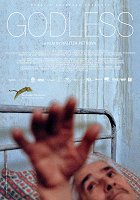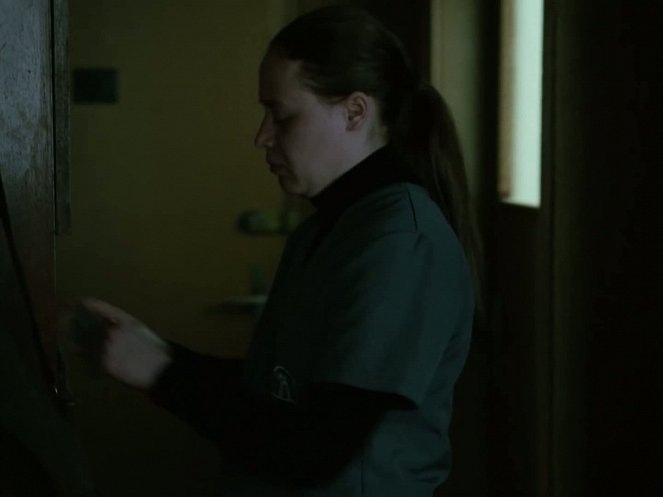Regie:
Ralitza PetrovaDrehbuch:
Ralitza PetrovaKamera:
Krum RodriguezBesetzung:
Ivan Nalbantov, Irena Ivanova, Ventzislav Konstantinov, Dimitar Petkov, Alexandr Triffonov, Svezhen MladenovInhalte(1)
In a remote Bulgarian town, Gana looks after the elderly with dementia and traffics their ID cards on the black market. Her mother, with whom she hardly speaks, is jobless, and her relationship with her boyfriend is not great either, to put it mildly. With their sexual attraction vanished, their intimacy is reduced to their addiction to morphine. Nothing seems to have consequences for Gana; not even the incidental murder of a patient, who threatens to expose her little traffic. But things start to change when she hears Yoan, a new patient, singing. A growing empathy for the old man awakens her conscience, but when he is arrested for fraud, she learns that "doing the right thing" demands a high price. (Locarno Festival)
(mehr)Kritiken (2)
This is what Home Care could have looked like if Czech filmmakers were not afraid to rub viewers the wrong way. But Godless goes to the opposite extreme. It confines viewers to a narrow academic format, showing them only dirt, disgust and pain, and communicating with them only to the absolutely necessary extent (for example, we learn the protagonist’s name only after an hour). As shown by Ralitza Petrova in her directorial debut, it is still cold and grey in Bulgaria and warm colours are taboo. The characters with their listless gaze live in ugly housing estates, staving off depression with morphine and food (the logical reaction to a confrontation with death? Peel a tangerine), and if they already have it bad enough, they are in danger of having it even worse. All of them are basically and without deeper justification cynical and mean, basing their relationships solely on sex and exploitation, and they have no aversion to stealing others’ money, identity or life. Sure, it’s set in a country scarred by decades of communism, a land without God, and I get the point, but it sufficed for me to read the title and watch the first ten minutes. The remaining ninety minutes are stultifying variations of the same thing without any nuance or change of tone. As a parable about divine justice or a spiritual work along the lines of Carlos Reygadas’s works, the film somehow holds up, thanks mainly to its devastating ending, which doesn't say more than is necessary, but in competition with much better nuanced and less straightforward social dramas from neighbouring Romania, Godless is ill-considered exploitation of misery whose creator takes delight in suffering instead of reflecting on how to get out of it. 50%
()
If the main character in her vintage jacket straight out of a Bulgarian second-hand clothes store didn’t look like Anička Dajdou whom I watch from time to time when I come home after work, I would probably be able to see this movie in a different light. But who knows, because with Godless, it’s very hard to search for something at least a little bit joyful. European dramas have a certain air to them and if they are shot uncompromisingly and inaccessible to the viewer, then it is difficult for anyone else to get through them. For example, the film was shot in Bulgaria, which is probably the worst European country, not only due to its appearance as well as its human population, but it’s also because it’s morally closer to Chad in central Africa than to a country that should be relatively close to the Czech Republic thanks to, for example, Slavism. From the beginning, Godless looks like the Czech movie Home Care, but after ten minutes, you will immediately understand what this movie is about and realize that you probably won’t see any jokes in here. There’s no jokes, there’s also no hope in sight. Disgust, death, extinction, loneliness, darkness – anything but hope. The only upsides were the camerawork and the ending, where they said everything that this film tried to convey during its course. But I’ve never seen a crazier European drama that would make its country into a worse hellhole than this one did. Either there’s something to it or the Bulgarian filmmaker is a proper self-sadist.
()

